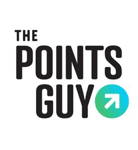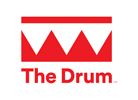For media inquiries on these stories and more, contact credit card expert and industry analyst Bill Hardekopf at (205) 985-9725 or billh@cardrates.com.
1. Big Banks Look for Post-Pandemic Rebound of Credit Card Revenue
 Big U.S. banks are prepared for credit card balances to start ticking up again this year as pandemic restrictions ease and stimulus checks stop arriving, setting up the industry for a bump in one of its most profitable businesses.
Big U.S. banks are prepared for credit card balances to start ticking up again this year as pandemic restrictions ease and stimulus checks stop arriving, setting up the industry for a bump in one of its most profitable businesses.
Lenders, including Capital One, Citigroup and JPMorgan have been sending out more promotions to enroll new customers and encourage borrowers to spend. Some 260 million offers were sent in March. Banks have increased digital marketing, too, on Facebook, Instagram, video sites and podcasts.
• Story By: David Henry, Reuters
2. Consumers are Getting Approved for Credit Cards Again after Pandemic Lull
 Credit card applications plummeted last year amid the nationwide shutdowns due to the Covid-19 pandemic. But data from the second half of last year shows that we are on our way to getting back to normal, at least for anyone looking to sign up for a new credit card.
Credit card applications plummeted last year amid the nationwide shutdowns due to the Covid-19 pandemic. But data from the second half of last year shows that we are on our way to getting back to normal, at least for anyone looking to sign up for a new credit card.
Consumers are approaching the pace of loan activity that existed pre-pandemic, according to TransUnion’s Q1 2021 Industry Insights Report. The report found that credit card originations had risen to 12.3 million in July through September 2020, and reached 15.5 million in October through December 2020, a considerable increase from the lows we observed in April through June 2020 of 8.6 million.
• Story By: Elizabeth Gravier, CNBC
3. In Apple Antitrust Trial, Judge Signals Interest in Railroad, Credit-Card Monopoly Cases
 The future of digital commerce on your iPhone could be influenced by how courts resolved questions about market control following technological innovations that disrupted previous generations: credit cards and railroads.
The future of digital commerce on your iPhone could be influenced by how courts resolved questions about market control following technological innovations that disrupted previous generations: credit cards and railroads.
With the courtroom battle between Epic Games and Apple concluded, U.S. District Judge Yvonne Gonzalez Rogers must now decide if the iPhone maker has improperly prohibited third-party app stores and forced developers to use its in-app payment system that collects a commission as high as 30%. As she decides if Apple has operated an illegal monopoly, she’s already made it clear during the trial in Oakland, Calif., that she’s thinking about how previous precedent-setting cases involving American Express and a St. Louis railroad apply to the new digital economy in the 21st century.
• Story By: Tim Higgins and Sarah E. Needleman, The Wall Street Journal
4. Buy Now, Pay Later Changed Retail. Health Care and Rent Are Next.
 These buy now, pay later providers have spent years slowly infiltrating the retail market through partnerships with merchants, but the pandemic has accelerated their popularity among online retailers. As a result, more consumers have grown familiar with these services, many of which have buzzy two-syllable names like Affirm, Klarna, Quadpay, and Sezzle.
These buy now, pay later providers have spent years slowly infiltrating the retail market through partnerships with merchants, but the pandemic has accelerated their popularity among online retailers. As a result, more consumers have grown familiar with these services, many of which have buzzy two-syllable names like Affirm, Klarna, Quadpay, and Sezzle.
It doesn’t end with retail, though. Emerging fintech apps are looking to apply this lending model to other sectors, from health care to travel to rent. Sure, people are growing acclimated to dividing their purchases into four easy payments, even applauding the option to do so. But no matter how you frame it, the pitfalls of these plans seem to be, unfortunately, just more debt.
• Story By: Terry Nguyen, Vox
5. Move Over, Amazon: American Express Launches Its First Checkout-Free Store
 Following in the footsteps of Amazon’s contactless stores, American Express has opened up its own check-out free store in the Barclay Center arena in Brooklyn. The store, exclusive to Amex cardholders, offers concessions and Brooklyn Nets merchandise to help fans avoid long lines and get back to the action faster.
Following in the footsteps of Amazon’s contactless stores, American Express has opened up its own check-out free store in the Barclay Center arena in Brooklyn. The store, exclusive to Amex cardholders, offers concessions and Brooklyn Nets merchandise to help fans avoid long lines and get back to the action faster.
The store is a partnership between Amex and the sports arena to keep fans safe from Covid-19. According to the Amex research, nearly two-thirds of live-entertainment consumers agree that because of COVID-19, contactless payment options have never been more important to them. And 70% say that having a contactless payment option available would make them feel more comfortable returning to live sports, music and entertainment events.
• Story By: Benet J. Wilson, The Points Guy
6. U.S. Pot Sellers Stash Cash as Banks Leave Them High and Dry
 Marijuana can be sold legally in 36 U.S. states and the District of Columbia for medical use and in 15 of them and in D.C. for recreational purposes. But it’s still illegal on a federal level, meaning most banks won’t service the industry in case they fall afoul of money laundering laws.
Marijuana can be sold legally in 36 U.S. states and the District of Columbia for medical use and in 15 of them and in D.C. for recreational purposes. But it’s still illegal on a federal level, meaning most banks won’t service the industry in case they fall afoul of money laundering laws.
Legal U.S. cannabis sales grew 30% to $22 billion last year, more than the $17.5 billion Americans spent on wine, according to data from Euromonitor. Sales are expected to jump more than 20% this year. “All this cash flowing around is just a recipe for disaster,” said one manufacturer. “How do you account for it? Where do you keep it? How do you move it? Even in a safe, it’s a security risk for employees.”
• Story By: Shariq Khan, Reuters
7. 3/4 of Latin American Youth Interested in Crypto
 A Mastercard Vice President said nearly four in ten people (37%) in Latin America and the Caribbean say they plan to use cryptocurrency next year. However, this figure jumps significantly, when it comes to younger people’s perception of cryptocurrencies.
A Mastercard Vice President said nearly four in ten people (37%) in Latin America and the Caribbean say they plan to use cryptocurrency next year. However, this figure jumps significantly, when it comes to younger people’s perception of cryptocurrencies.
He said 67% of millennials are more willing to use them now than a year ago. Learning more about cryptocurrencies interests another 79% of millennials. Meanwhile, 76% of millennials said they would use them more if they understood them better.
• Story By: Nicholas Pongratz, Yahoo Finance
8. Fed Debit Card Proposal Would Increase Complexity, Costs
 A proposed Federal Reserve regulation could adversely impact credit unions by increasing regulatory burden, CUNA wrote to the Senate Banking, Housing, and Urban Affairs Committee Tuesday.
A proposed Federal Reserve regulation could adversely impact credit unions by increasing regulatory burden, CUNA wrote to the Senate Banking, Housing, and Urban Affairs Committee Tuesday.
“In our view, the proposal represents much more than a clarification but instead would add new requirements to Regulation II that would increase the complexity and costs associated with debit cards.”
Credit unions can comply with the existing regulations by issuing debit cards carrying a signature network and an unaffiliated network. The proposed rule would require issuers to offer two unaffiliated networks which must also be capable of processing transactions under a new framework of expectations surrounding merchant type, transaction and location.
• Story In: Credit Union National Association
9. These New Capital One Offers Can Save You Hundreds on Groceries and Streaming
 Savor Cash Rewards cardholders now earn 4% cash back on popular streaming services such as Hulu, Disney+, Netflix, and more. You’ll also get 3% cash back, up from 2%, at grocery stores (excluding superstores like Walmart and Target).
Savor Cash Rewards cardholders now earn 4% cash back on popular streaming services such as Hulu, Disney+, Netflix, and more. You’ll also get 3% cash back, up from 2%, at grocery stores (excluding superstores like Walmart and Target).
The card already earned 4% cash back on dining and entertainment. The Savor Cash Rewards card has a $95 annual fee. If you have the SavorOne Cash Rewards card, which does not carry an annual fee, you’ll earn 3% cash back on dining, entertainment, popular streaming services, and grocery stores. You’ll earn 1% cash back on all other purchases. All of those elevated earnings are for an unlimited time.
• Story By: Samatha Rosen, NextAdvisor
10. Game On: 37% of Mobile Gamers Purchased a Product Because of an In-Game Ad
 Most gamers don’t have kind words to say about in-game ads. However, 37% of mobile gamers say in-game ads have influenced them to make a purchase during the past three months. Perhaps even more surprising is the fact that nearly a quarter (23%) of mobile gamers polled say they have made multiple purchases because of in-game ads.
Most gamers don’t have kind words to say about in-game ads. However, 37% of mobile gamers say in-game ads have influenced them to make a purchase during the past three months. Perhaps even more surprising is the fact that nearly a quarter (23%) of mobile gamers polled say they have made multiple purchases because of in-game ads.
• Story By: Kenneth Hein, The Drum
11. Cryptocurrency Scams Have Soared 1,000% Since October
 As the popularity and price of Bitcoin, Dogecoin, and Ethereum continue to rise, so too do the online scams associated with those digital currencies. Americans have lost more than $80 million in cryptocurrency investment scams since October, a 1,000% increase from the fall of 2019, according to FTC data.
As the popularity and price of Bitcoin, Dogecoin, and Ethereum continue to rise, so too do the online scams associated with those digital currencies. Americans have lost more than $80 million in cryptocurrency investment scams since October, a 1,000% increase from the fall of 2019, according to FTC data.
People between the ages of 20 and 39 were hit particularly hard, representing about 44% of the reported losses. The FTC data showed about 7,000 reports of crypto investment scams received by the agency since last fall, with a median loss of $1,900.
• Story By: Khristopher J. Brooks, CBS News
12. TD Bank Fined $122M For Enrolling Customers in Overdraft Service Without Consent
 TD Bank was been ordered to pay $122 million to resolve claims that it charged U.S. consumers fees without consent on its optional overdraft service. The U.S. subsidiary of Toronto’s TD Bank Group will pay $97M in restitution to about 1.42 million consumers and a $25 million civil penalty.
TD Bank was been ordered to pay $122 million to resolve claims that it charged U.S. consumers fees without consent on its optional overdraft service. The U.S. subsidiary of Toronto’s TD Bank Group will pay $97M in restitution to about 1.42 million consumers and a $25 million civil penalty.
The CFPB said the bank violated the Electronic Fund Transfer Act by charging consumers overdraft fees for ATM and one-time debit card transactions without their consent, after claiming it was a free service.
• Story By: Jeff Blumenthal, Philadelphia Business Journal
Advertiser Disclosure
CardRates.com is a free online resource that offers valuable content and comparison services to users. To keep this resource 100% free, we receive compensation for referrals for many of the offers listed on the site. Along with key review factors, this compensation may impact how and where products appear across CardRates.com (including, for example, the order in which they appear). CardRates.com does not include the entire universe of available offers. Editorial opinions expressed on the site are strictly our own and are not provided, endorsed, or approved by advertisers.





![Game Over: Here’s Why the Best Credit Card Rewards May End Soon ([updated_month_year]) Game Over: Here’s Why the Best Credit Card Rewards May End Soon ([updated_month_year])](https://www.cardrates.com/images/uploads/2019/01/game-over-credit-card-rewards.jpg?width=158&height=120&fit=crop)


![3 FAQs: ATM Card vs. Debit Card vs. Credit Card ([updated_month_year]) 3 FAQs: ATM Card vs. Debit Card vs. Credit Card ([updated_month_year])](https://www.cardrates.com/images/uploads/2016/05/atm-card-vs-debit-card-vs-credit-card--1.png?width=158&height=120&fit=crop)
![What Card is in the Jennifer Garner Credit Card Commercial? ([updated_month_year]) What Card is in the Jennifer Garner Credit Card Commercial? ([updated_month_year])](https://www.cardrates.com/images/uploads/2018/05/jennifer-2.jpg?width=158&height=120&fit=crop)
![Can You Pay a Credit Card with a Credit Card? 3 Ways Explained ([updated_month_year]) Can You Pay a Credit Card with a Credit Card? 3 Ways Explained ([updated_month_year])](https://www.cardrates.com/images/uploads/2017/02/card-with-card-2.png?width=158&height=120&fit=crop)
